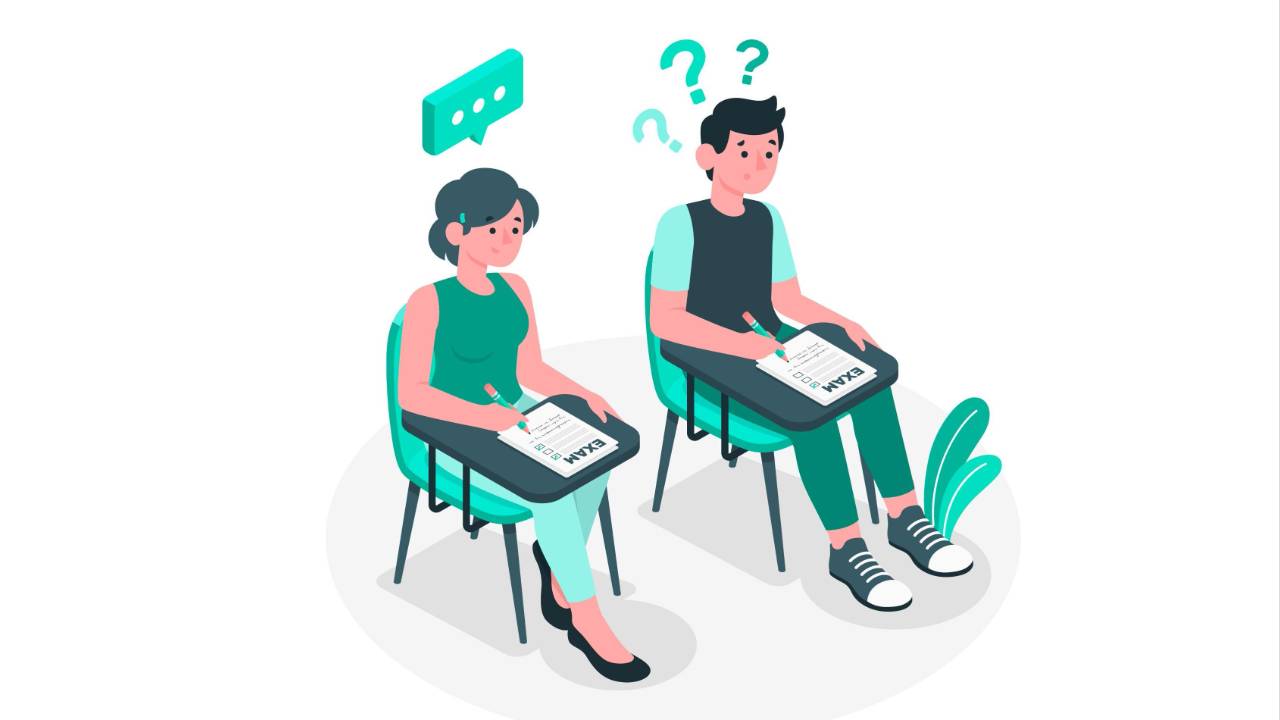
As a Student, I Cheated. As a Teacher, I Make Peace With That (and Make a Call for Change)
Why I believe giving students access to formula sheets isn’t “making it easier”—it’s making it fairer.
This opinion isn't based on trends or modern classroom discourse. It’s personal. It goes back to when I was a student.
Because I’ve always struggled with memorization.
Birthdays, names, faces, appointments, where I left my sunglasses—none of it sticks. To this day, I still marvel at how actors can memorize entire scripts. It’s completely beyond me. Over the years, I’ve read about mnemonic tricks. I’ve tried the usual memory techniques my classmates swore by. Nothing ever worked.
Naturally, this extended into school subjects. I was a terrible Biology student. So much of it relied on memorizing details, and I simply couldn’t keep up. I gravitated toward Math and Physics precisely because they involved less rote memorization and more logic, structure, and comprehension.
But even in those subjects, exams required us to memorize formulae. And that’s where I hit a wall.
There were some formulas I had truly internalized—formulas so structural that they were almost second nature. Others I could re-derive on the spot if needed. But a vast number of them were just too intricate or too similar to one another. And there were so many! It wasn’t about understanding—I did understand. I just couldn’t recall all the formulas under timed conditions.
That’s when I began to falter. I started questioning if I even had what it takes for Math and Physics. Maybe I didn’t have the “right kind of brain.” Maybe this path wasn’t for me.
But I loved these subjects.
And my parents had raised me to never give up easily.
So I found a workaround: I started creating my own formulaires and bringing them to tests—quietly, secretly. With those tools in hand, I could finally show what I truly understood. My grades began to reflect my actual comprehension. My confidence returned. I had removed a barrier that had nothing to do with thinking and everything to do with memory.
Fast forward a few decades, and here I am—a Math and Physics teacher who still can’t recite every formula from memory.
Over the years, through sheer repetition, I’ve memorized most of the ones I struggled with. But not all. I suspect I may have some kind of attention disorder (something I need to get properly diagnosed). Still, the point is: I don’t think I’m a worse teacher because I can’t rattle off formulas instantly.
What I do know—deeply, structurally—is how those formulas were built. Where they come from. Why they work. And that’s what I try to pass on to my students.
Because formulas are tools.
And tools, by themselves, aren’t useful until you know how and when to use them. A plumber needs his wrench—but he also needs to know when to use it, where to turn it, and how much force to apply to it. It’s the same in Math and Physics. The thinking matters more than the tool.
This is why I strongly support the approach taken by Cambridge Assessment International Examinations (which I teach), where students are given a list of formulas and constants (in Physics) during their exams. This doesn’t lower the bar—it raises it, by focusing on what really counts: understanding, application, and reasoning.
Stephen Hawking once joked that for every equation he included in his book A Brief History of Time, he’d lose half his readers. I’d say something similar about education: For every formula we demand students memorize, we lose a few thousand future scientists, engineers, doctors, and problem-solvers.
If it wasn't for my parents, I would've probably given up thirty years ago, and I wouldn't be writing this post today.
So let’s stop confusing memory with intelligence.
Let’s reward understanding.
Let’s give students the tools—so they can build the future.

